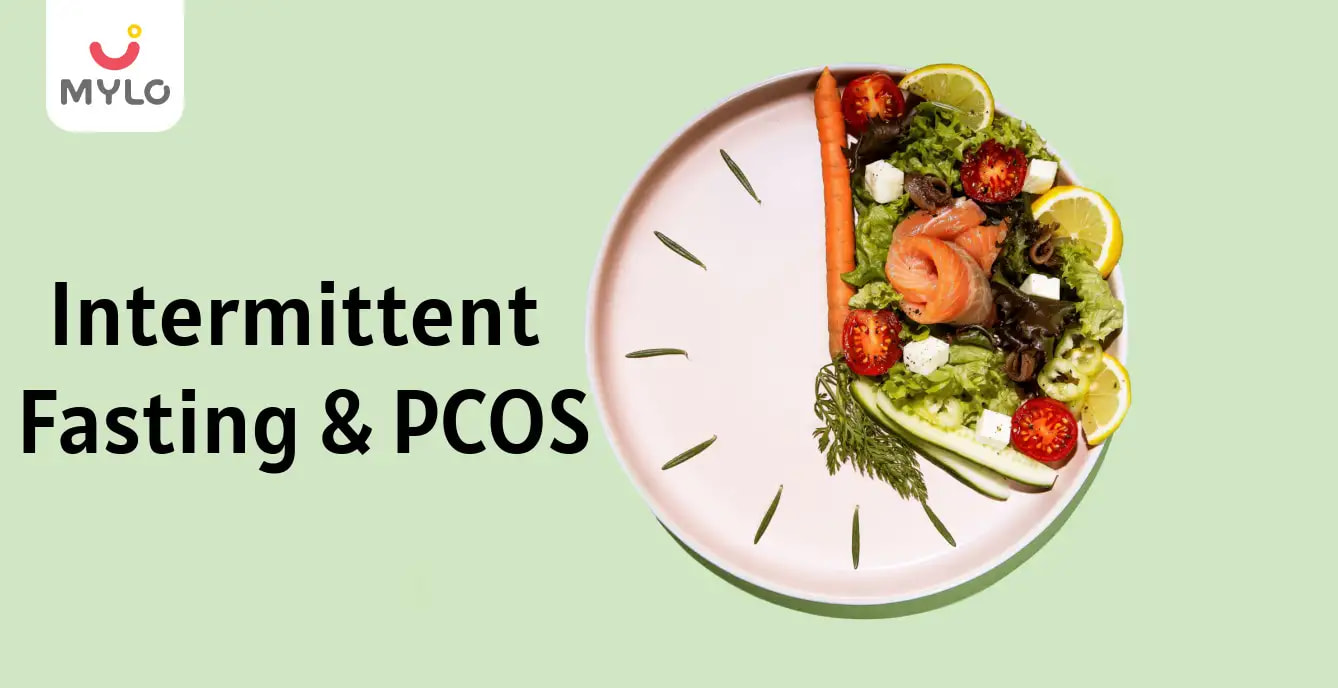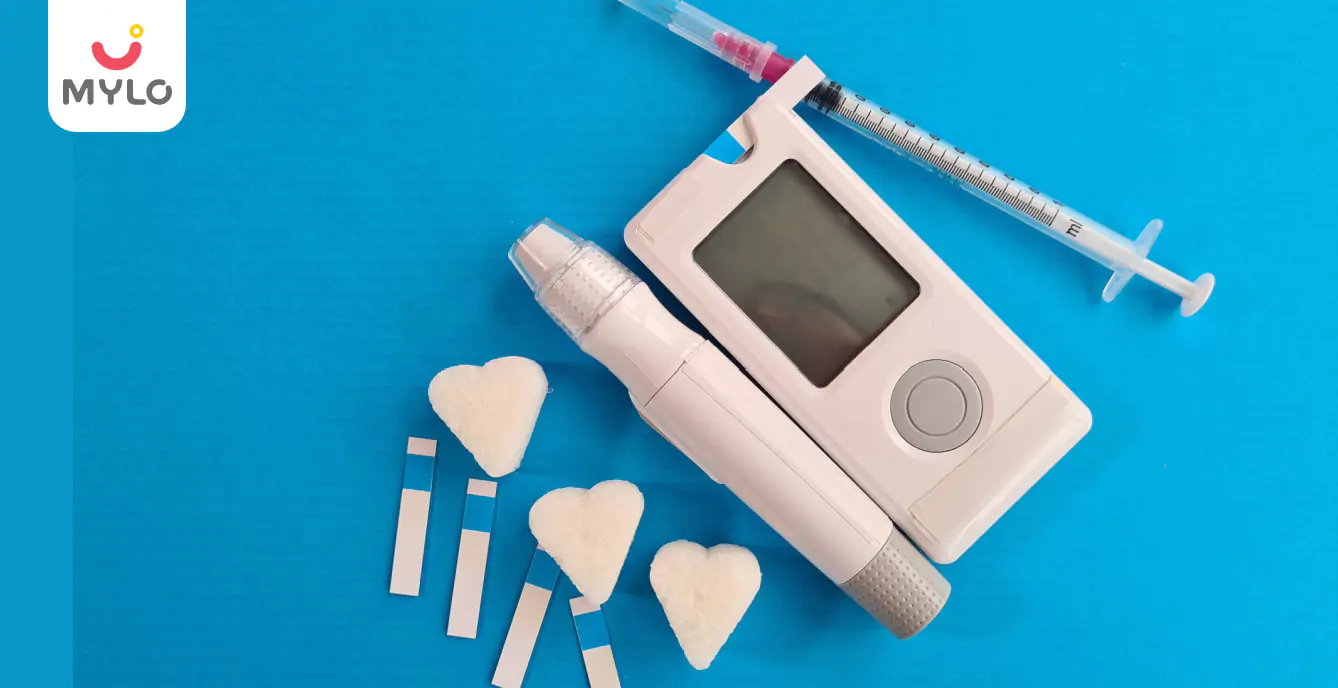Home

PCOS & PCOD

Intermittent Fasting & PCOS: The Ultimate Guide to Benefits, Risks and Precautions
In this Article

PCOS & PCOD
Intermittent Fasting & PCOS: The Ultimate Guide to Benefits, Risks and Precautions
Updated on 21 December 2023



Medically Reviewed by
Dr. Shruti Tanwar
C-section & gynae problems - MBBS| MS (OBS & Gynae)
View Profile

Intermittent fasting has gained popularity in recent years as a method for weight loss and improving overall health. But what about the relationship between intermittent fasting & PCOS? Does intermittent fasting help with PCOS?
In this comprehensive guide, we will understand the impact of intermittent fasting on PCOS, potential benefits and risks along with some important precautions to keep in mind.
Is intermittent fasting good for PCOS?
While there is limited research specifically on the effects of intermittent fasting on PCOS, some studies suggest that it may have potential benefits. One study published in the Journal of Clinical Endocrinology and Metabolism found that intermittent fasting helped improve insulin resistance, a common issue in PCOS.
Another study published in the Journal of Translational Medicine showed that intermittent fasting led to weight loss and reduced testosterone levels in women with PCOS. However, it's important to note that every woman with PCOS is different, and what works for one may not work for another. It's always best to consult with a healthcare professional before starting any new dietary regimen, especially if you have PCOS.
How does intermittent fasting help with PCOS?
Intermittent fasting has been shown to have several potential benefits for women with PCOS. Here are five ways in which intermittent fasting can help with PCOS:
1. Improved insulin sensitivity
Insulin resistance is a common issue in women with PCOS, which can lead to weight gain and other health problems. Intermittent fasting has been found to improve insulin sensitivity, helping to regulate blood sugar levels and potentially reducing the risk of developing type 2 diabetes.
2. Weight loss
Weight management is often a challenge for women with PCOS. Fasting for PCOS weight loss may help by reducing calorie intake and increasing fat burning. However, it's important to approach weight loss in a healthy and sustainable way, and intermittent fasting should be done under the guidance of a healthcare professional.
You may also like : PCOS Weight Loss in 1 Month: How to Shed Pounds Fast
3. Hormonal balance
PCOS is characterized by hormonal imbalances, including elevated levels of testosterone. Some studies suggest that intermittent fasting may help regulate hormone levels, leading to a better balance and potentially reducing symptoms such as excessive hair growth and acne.
You may also like : PCOS Acne: The Ultimate Guide to Causes, Treatment and Management
4. Reduced inflammation
Chronic inflammation is another common issue in women with PCOS, which can contribute to various health problems. Intermittent fasting has been shown to reduce markers of inflammation in the body, potentially improving overall health and reducing the risk of complications associated with PCOS.
5. Improved fertility
PCOS is a leading cause of infertility in women. While more research is needed, some studies suggest that intermittent fasting may have positive effects on fertility by improving hormone levels and insulin sensitivity. However, it's important to consult with a fertility specialist before making any changes to your diet or lifestyle if you're trying to conceive.
You may also like : The Ultimate Balanced Diet Chart: Your Guide to Optimal Nutrition
How effective is fasting for PCOS weight loss?
Weight loss can be particularly challenging for women with PCOS due to hormonal imbalances and insulin resistance. So, is intermittent fasting good for PCOS if you’re wishing to lose weight?
Intermittent fasting has been shown to be effective for weight loss in general, and it may also be beneficial for women with PCOS. By restricting the eating window and reducing calorie intake, intermittent fasting can create a calorie deficit, leading to weight loss.
However, it's important to approach weight loss in a healthy and sustainable way. Crash diets or extreme fasting can have negative effects on hormone levels and overall health, particularly for women with PCOS. It's best to work with a healthcare professional or a registered dietitian who specializes in PCOS to develop a personalized plan that takes into account your specific needs and goals.
In addition to intermittent fasting, other lifestyle factors such as regular physical activity and a balanced diet are important for long-term weight management in women with PCOS. It's also crucial to focus on overall health rather than just the number on the scale, as improvements in insulin sensitivity, hormone balance, and overall well-being are equally important.
You may also like : Insulin Resistance & PCOS: A Comprehensive Guide to Causes and Management
What are the side effects of intermittent fasting for PCOS?
While intermittent fasting may have potential benefits for women with PCOS, it's important to be aware of the potential side effects. Here are five side effects of intermittent fasting for PCOS:
1. Hormonal disruptions
Intermittent fasting can cause hormonal disruptions, particularly in women with PCOS who already have hormonal imbalances. It may lead to irregular periods, changes in menstrual flow, or even exacerbate existing hormonal issues.
2. Blood sugar fluctuations
PCOS is often associated with insulin resistance and blood sugar dysregulation. Intermittent fasting can further impact blood sugar levels, leading to fluctuations that may worsen symptoms such as fatigue, mood swings, and cravings.
3. Nutritional deficiencies
Restricting the eating window can make it challenging to consume a balanced diet and meet nutritional needs, especially if not carefully planned. This can potentially lead to deficiencies in essential nutrients, which are crucial for overall health and hormone balance.
4. Increased stress levels
Intermittent fasting can increase stress levels, as the body perceives the fasting period as a stressor. Women with PCOS often have higher levels of stress due to the condition itself, and additional stress from fasting may further impact hormonal balance and overall well-being.
5. Adverse effects on fertility
Fertility can be a concern for women with PCOS, and intermittent fasting may have adverse effects on reproductive health. It's important to consult with a fertility specialist before making any changes to your diet or lifestyle if you're trying to conceive.
You may also like : Lean PCOS: A Comprehensive Guide on Causes, Symptoms, and Treatment
Precautions to keep in mind for intermittent fasting & PCOS
While intermittent fasting may have potential benefits for women with PCOS, it's crucial to approach it with caution and keep certain precautions in mind. Here are five precautions to consider:
1. Consult with a healthcare professional
Before starting intermittent fasting or making any significant changes to your diet or lifestyle, it's important to consult with a healthcare professional who is familiar with PCOS. They can help determine if intermittent fasting is suitable for you and provide guidance on how to approach it safely.
2. Start gradually
If you're new to intermittent fasting, it's best to start gradually and allow your body to adapt. Begin with shorter fasting periods and gradually increase the duration over time. This can help minimize potential side effects and make the transition easier.
3. Listen to your body
Pay attention to how your body responds to intermittent fasting. If you experience any negative side effects or your symptoms worsen, it may be a sign that intermittent fasting is not suitable for you. It's important to listen to your body and adjust your approach accordingly.
4. Focus on nutrient-dense foods
During the eating window, prioritize nutrient-dense foods that provide essential vitamins, minerals, and antioxidants. This can help ensure that you're meeting your nutritional needs and support overall health and hormone balance.
5. Monitor your progress
Keep track of your progress and monitor how intermittent fasting affects your symptoms, weight, and overall well-being. Regularly check in with your healthcare professional to discuss any changes or concerns.
The Bottomline
Understand the relation between intermittent fasting & PCOS can help women better manage their symptoms and lives. Intermittent fasting may have potential benefits for women with PCOS, such as improved insulin sensitivity, weight loss, hormonal balance, reduced inflammation, and improved fertility. However, it's important to approach intermittent fasting with caution and keep certain precautions in mind. Consult with a healthcare professional, start gradually, listen to your body, focus on nutrient-dense foods, and monitor your progress.
References
1. Floyd R, Gryson R, Mockler D, Gibney J, Duggan SN, Behan LA. (2022). The Effect of Time-Restricted Eating on Insulin Levels and Insulin Sensitivity in Patients with Polycystic Ovarian Syndrome: A Systematic Review. Int J Endocrinol.
2. Chiofalo B, Laganà AS, Palmara V, Granese R, Corrado G, Mancini E, Vitale SG, Ban Frangež H, Vrtačnik-Bokal E, Triolo O. (2017). Fasting as possible complementary approach for polycystic ovary syndrome: Hope or hype? Med Hypotheses.
3. Cienfuegos S, Corapi S, Gabel K, Ezpeleta M, Kalam F, Lin S, Pavlou V, Varady KA. (2022). Effect of Intermittent Fasting on Reproductive Hormone Levels in Females and Males: A Review of Human Trials. Nutrients.





Medically Reviewed by
Dr. Shruti Tanwar
C-section & gynae problems - MBBS| MS (OBS & Gynae)
View Profile


Written by
Anupama Chadha
Anupama Chadha, born and raised in Delhi is a content writer who has written extensively for industries such as HR, Healthcare, Finance, Retail and Tech.
Read MoreGet baby's diet chart, and growth tips

Related Articles
Related Questions
Influenza and boostrix injection kisiko laga hai kya 8 month pregnancy me and q lagta hai ye plz reply me

Hai.... My last period was in feb 24. I tested in 40 th day morning 3:30 .. That is faint line .. I conculed mylo thz app also.... And I asked tha dr wait for 3 to 5 days ... Im also waiting ... Then I test today 4:15 test is sooooo faint ... And I feel in ma body no pregnancy symptoms. What can I do .

Baby kicks KB Marta hai Plz tell mi

PCOD kya hota hai

How to detect pcos

RECENTLY PUBLISHED ARTICLES
our most recent articles

PCOS & PCOD
Insulin Resistance & PCOS: A Comprehensive Guide to Causes and Management

Breathlessness
Your heart stops beating when your baby feels breathless! Here are 5 things to know about infant breathlessness.

Care for Baby
Newborn Crying: What It Means and How to Handle It?

Growth & Development
When Do Babies Make Eye Contact: Keeping an Eye on Important Milestones

Women Interests
Is your baby getting breathless frequently? Five things you must know

Birthday Parties
50 Budget-Friendly Birthday Return Gift Ideas to Wow Your Guests
- PCOS Exercise: Your Guide to Sweating Away PCOS
- PCOS and Pregnancy: How to Manage PCOS on the Path to Parenthood
- PCOS Tests: The Power of Diagnostic Tests in Your Health Journey
- Must-Read Ruskin Bond Short Stories for Little Minds
- The Top 10 Tenali Raman Stories You Must Read to Your Kids
- Ovulation Bleeding: The Ultimate Guide to Causes, Symptoms and Management
- A Guide to Recognizing Symptoms of Ovulation After HCG Injection
- Bulky Ovaries Explained: What Every Woman Should Be Aware Of
- Ovulation: The Key to Maximizing Your Chances of Conception and Pregnancy
- The Ultimate Compilation of Fancy Dress Ideas for Young Kids
- How Long Does Sperm Take to Reach the Egg?
- Pregnancy Symptoms After Ovulation Day by Day: Exploring the Daily Progression
- Signs Ovulation is Over: Your Guide to Understanding the End of Ovulation
- Top 15 Akbar and Birbal Stories for Young Kids


AWARDS AND RECOGNITION

Mylo wins Forbes D2C Disruptor award

Mylo wins The Economic Times Promising Brands 2022
AS SEEN IN
















- Mylo Care: Effective and science-backed personal care and wellness solutions for a joyful you.
- Mylo Baby: Science-backed, gentle and effective personal care & hygiene range for your little one.
- Mylo Community: Trusted and empathetic community of 10mn+ parents and experts.
Product Categories
baby carrier | baby soap | baby wipes | stretch marks cream | baby cream | baby shampoo | baby massage oil | baby hair oil | stretch marks oil | baby body wash | baby powder | baby lotion | diaper rash cream | newborn diapers | teether | baby kajal | baby diapers | cloth diapers |




